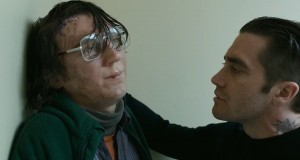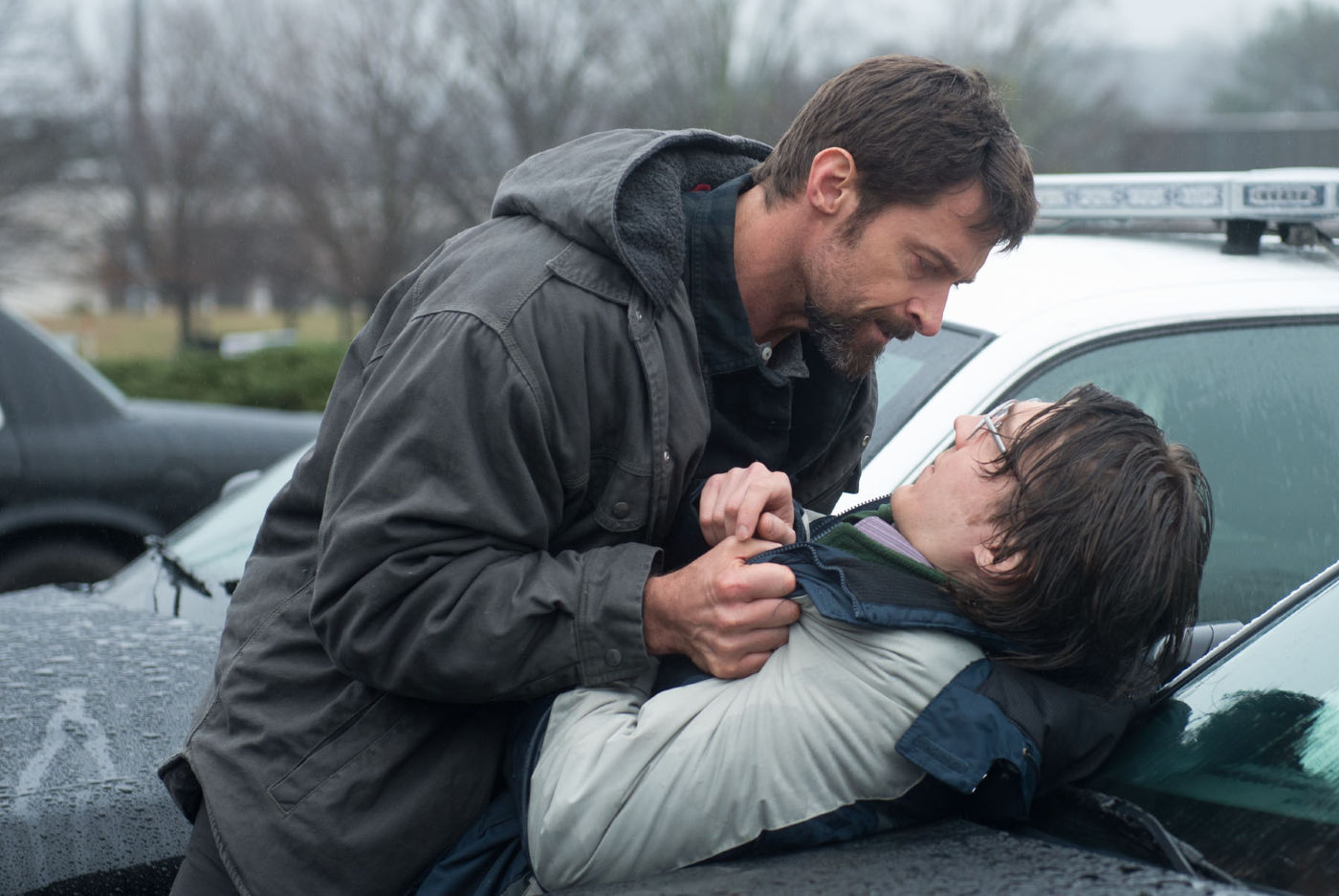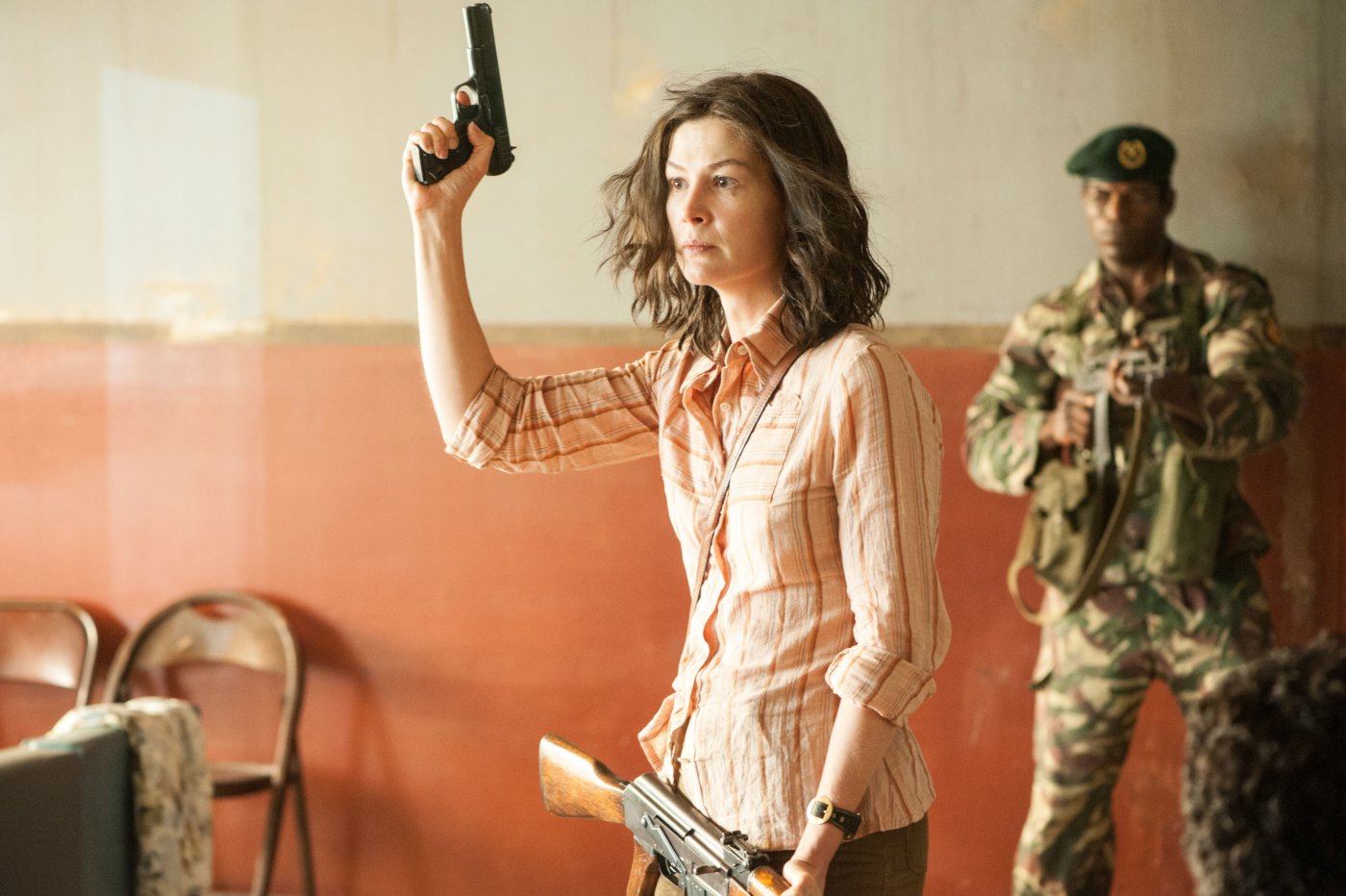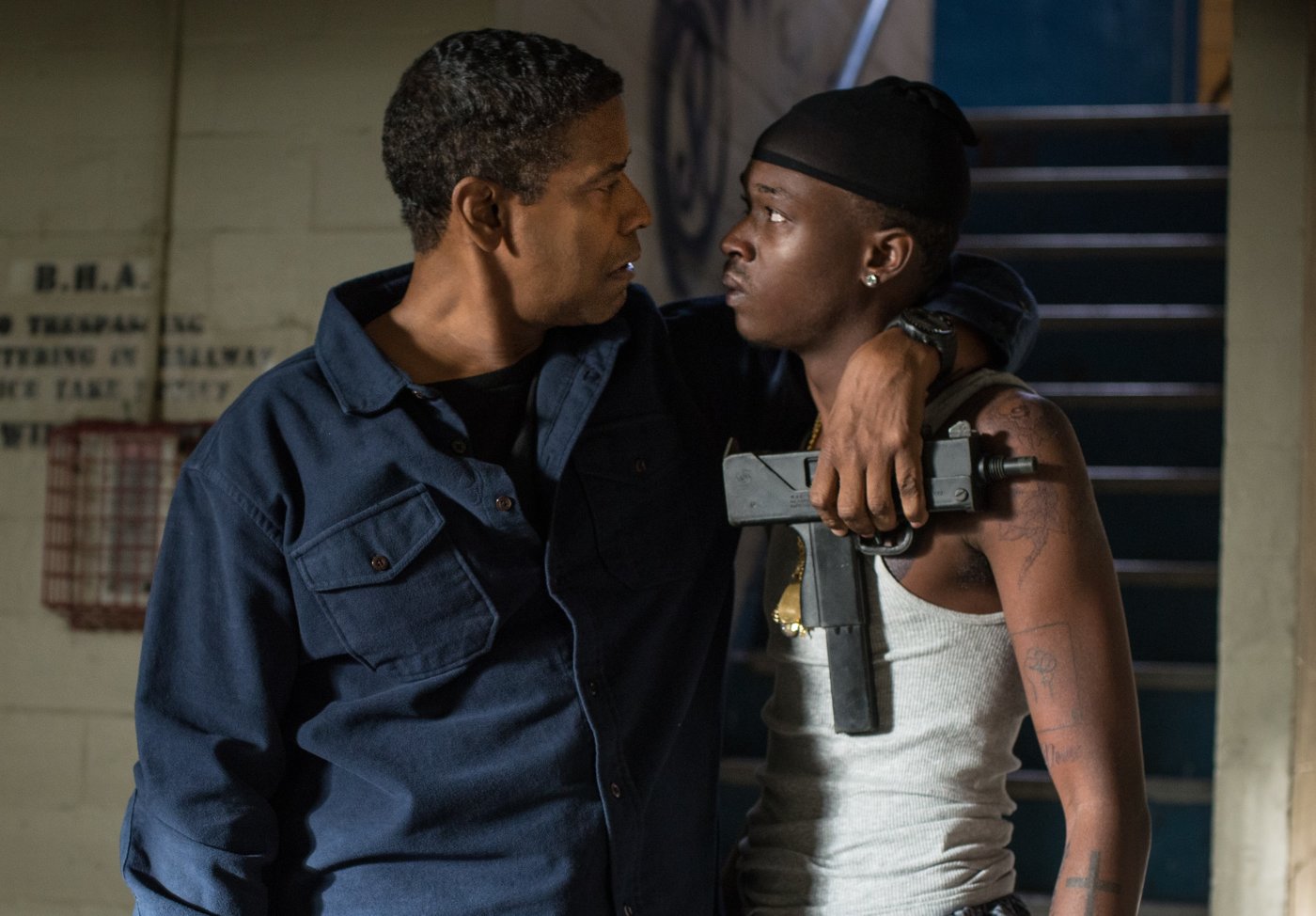Prisoners is an angry film. It probably gets drunk and surly at other films; you can’t really invite it anywhere. Unfortunately, it’s also a mirror-reflection-of-our-society film, so you have to take it with you even if you don’t want it around. The mirror part is Keller Dover (Hugh Jackman), a normal American family man who deep ends after his daughter is abducted. Two children total are abducted in the film, and the other girl is a family friend taken at the same time after Thanksgiving lunch in the cold and wet.
After the abduction, Keller starts to unravel, slowly at first in a fit of fantastic anger, but that’s just the tip. When he regains composure, he captures the newly-released-for-lack-of-grounds prime suspect (Paul Dano) and plays his own game of imprisonment. If I’m being honest, I pretty much want to punch Paul Dano every.single.time I see him. Yes, even in Ruby Sparks, a film I loved. Now … do I want to imprison and torture him? No, but I can see the circumstances by which I’d consider it. This is our mirror. Same-boat parents Viola Davis and Terrence Howard represent conscience. They know Keller’s actions are wrong, but don’t want him to stop all the same. Do you want to do nothing when your child goes missing? Do you want to trust the authorities?
Prisoners is that gritty dark side reflection most people never wish to see. Hugh Jackman has never been scarier. I see The Wolverine and I see all his little wolfie friends. Prisoners represents the Hugh Jackman I wouldn’t mess with. A father who loses a daughter and all tethers to civil society with it? Freaky. Is this you? Is this your justification when tragedy hits? It’s important to understand this is wrong and the film lets you know it understands, too, even if it not-so-subtly condones it. You  might have a conversation or two afterwards against your will.
might have a conversation or two afterwards against your will.
Speaking of against your will, getting a solid sentence out of anybody being questioned in this film is akin to drawing water from a faucet-less spigot. Whenever a key witness is questioned, you wait. Questioned nicely? Questioned with harmful force? Doesn’t matter. You’re not getting an answer. Honestly, I have never been so annoyed while waiting for dialogue. Is this what the film is telling me? Even torture won’t get a mumble-mouth to speak up? Torture doesn’t work? I tell you this much – I am no fan of torture, but after a while, I wanted to get in there and see if I could get some answers.
This, of course, brings up the biggest issue for me with Prisoners – there aren’t enough answers … to anything. Detective Loki (Jake Gyllenhaal) has to be the most frustrated guy around. No suspect ever gives him a straightforward honest answer. He finds things out and they make the puzzle more complicated – why does he find snakes instead of missing children? Why when a suspect actually wants to answer is there always an unsolvable riddle involved? I’m still trying to figure out why there is a dead body in the hollow of the pedophile priest’s house. Oh, look, dead body. Huh, there seems to be a connection to the missing children. So, father, why is there a dead body in your basement? Why does it look like he’s been tortured?
Why? So you can discuss it. Go ahead, discuss. This film is about you.
There’s a prison of the mind,
There’s a prison of the soul,
There’s a prison is your heart,
And there’s one that’s just a hole.
These prisons are do exist,
Even within the deranged,
Underneath indulgence
Gasps a consciousness changed.
Rated R, 153 Minutes
D: Denis Villeneuve
W: Aaron Guzikowski
Genre: The dark side
Type of person most likely to enjoy this film: Much like Schindler’s List, there isn’t enjoyment of this film, there is only appreciation.
Type of person least likely to enjoy this film: Dreamers



